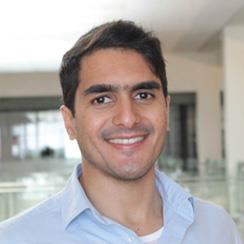
Osman M. Bakr
Professor, Materials Science and Applied Physics
Associate Vice President, Research
“My lab is dedicated to studying the physics, chemistry, self-assembly and design of hybrid organic-inorganic materials and nanomaterials to generate breakthrough applications in optoelectronics, photonics and renewable energy.”
Program Affiliations
Center of Excellence
Biography
Osman M. Bakr is a professor in the Material Science and Applied Physics program at KAUST, where he has been a faculty member since 2010. He is recognized worldwide for his significant contributions to the field of hybrid organic-inorganic materials, in particular for his work on perovskite and quantum dot materials and their applications in solar cells and optoelectronics. At KAUST he leads the Functional Nanomaterials Lab, dedicated to studying the physics and chemistry of hybrid materials. Prof. Bakr earned his B.Sc. in materials science and engineering from MIT, and Ph.D. in applied physics from Harvard University. He has received numerous accolades throughout his career, including the prestigious Kuwait Prize and the Kroll Medal & Prize by the Institute of Materials, Minerals and Mining. Professor Bakr is ranked among the world’s most influential researchers, recognized as a highly cited researcher by Clarivate in both chemistry and materials science. The Times Higher Education named Bakr one of the ten leading university researchers worldwide in the field of perovskite solar cells. He is active with diverse professional groups, serving as executive editor for ACS Materials Letters of the American Chemical Society, among other affiliations.
Research Interests
Professor Bakr and his research group (FuNL) group work on the design,synthesis and property elucidation of hybrid organic-inorganic semiconductors(both nanoscale and bulk), with a focus on applications in radiation detection,imaging and renewable energy.
Education Profile
Postdoctoral Fellow, Laboratory for Nanoscale Optics, Harvard University, USA, 2009-1010
Ph.D., Applied Physics, Harvard University, USA, 2009
M.Sc., Applied Physics, Harvard University, USA, 2005
B.Sc., Materials Science and Engineering, Massachusetts Institute of Technology, 2003
Awards and Recognitions
Publications
Research Areas
- Material Science and Engineering
- Electrical and Computer Engineering
- Chemical Science

